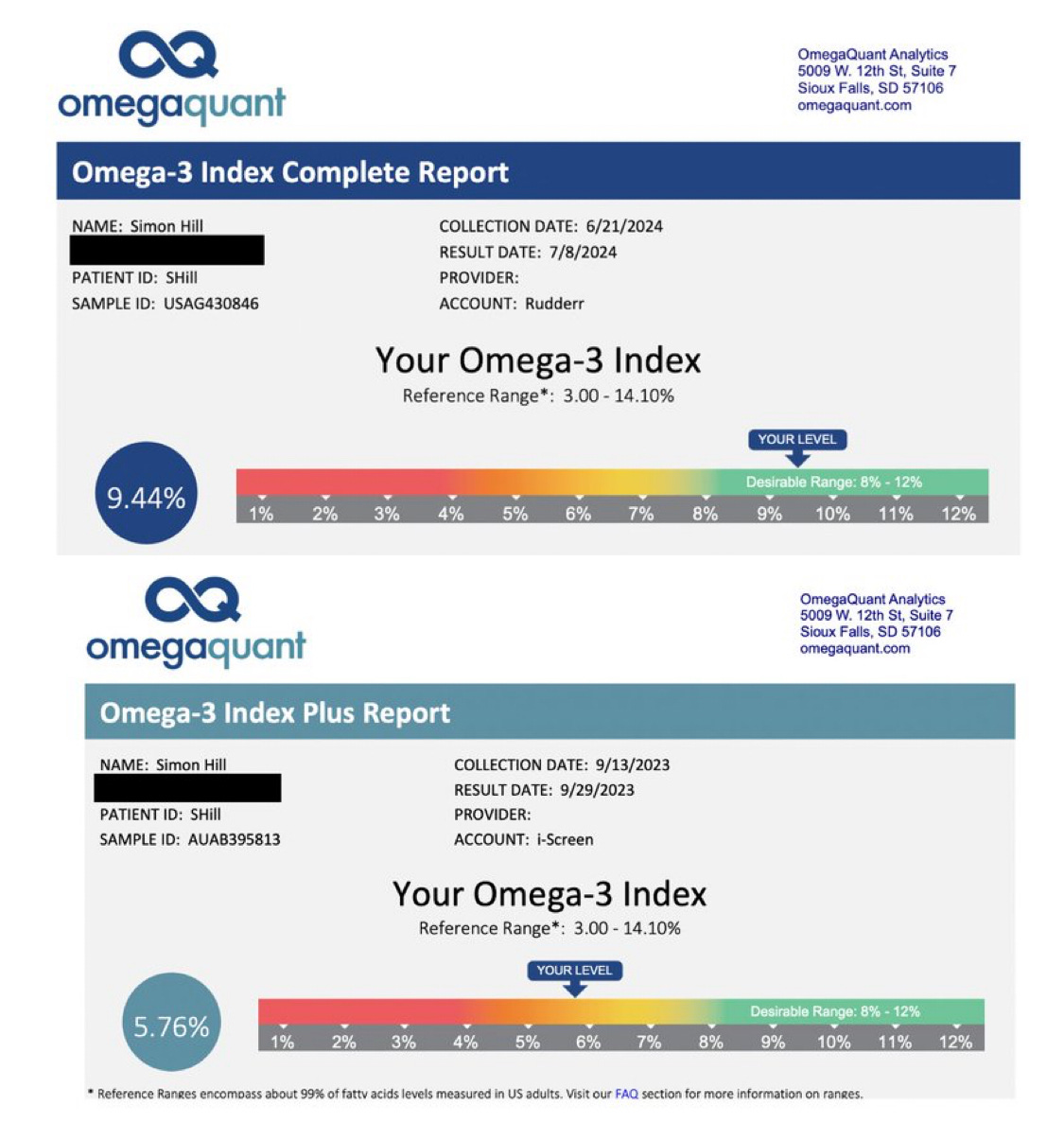I often get involved in health and wellness discussions on Twitter or X or whatever it is called now.
Here is one of recent. I am cutting and pasting it here to show how I like to ask questions and get closer to roots of issues. I don’t like treating markers. I prefer to fix the root causes of whatever system is out of balance, and then watch the marker and health issue rebalance and fix itself.
So below is the other persons X post followed by my response.
In the comments, please tell me what I got wrong or didn’t ask.
If you prefer you can go directly to the X post and see if the poster replied or anyone else for that matter.
https://x.com/theproof/status/1810532561510424877?s=46&t=rzp8BXnceo33vyInRPqKfw
Today I got my latest Omega 3 Index results back. My O3 index is 9.44% (today) up from 5.76% (September 2023).
I got to that level with approximately 1.5-2g of DHA/EPA per day.
My plan is to now see if I can stay above 8% with 1-1.5g of DHA/EPA per day.
What's the rationale here?
- Omega 3 status is likely to be suboptimal if you don't eat fish or supplement with DHA/EPA.
- Suboptimal for what? There's mechanistic data supporting EPA as being able to get into arterial plaque and help stabilise it (or even promote regression). I likely have some plaque from 30 years of a high saturated fat diet and a strong genetic predisposition to CVD. There's outcome data supporting omega 3 supplementation as beneficial for those with low fish intake (but the dose was closer to 1g/day). Then there's neurological health - data soon to be published (I've reviewed the version at peer review) provides more evidence that long chain omega 3's may be important in reducing risk of dementia/stroke in old age.
- Why not take a higher dose? Why try and reduce the dose down to 1-1.5g/day and retest?
Well...like many things dose matters. While there may be benefits up for grabs there are also risks to consider. Risk of Atrial Fibrillation goes up as you have higher doses of EPA/DHA. Which leads me to my current position being that no matter your strategy (diet, supplementation or both) you want to get to an O3 Index of 8% with the smallest dose of DHA/EPA.
Here was my response.
Did u check your excess inflammation/oxidation status since u r using fish oils, which can be oxidized fairly quickly?
Saturated fat causes plaque? Really. Why is most fat stored by the body stored as saturated fat?
Why do high levels of supplemental Omegas link to AFib? What is the mechanism? Perhaps excess oxidation from supplemental fish oils? Did any of the studies correlating omegas and AFib split the study groups into those who supplemented fish oils vs those who had high levels by just eating fish?
Is there a higher rate of AFib in populations that eat more fish?
What’s your actual “genetic” risk of CAD? Is it an actual gene or genes? Or is your diet and lifestyle just a mismatch for your genes?
Genes that improve survival and reproduction get passed on. Others should get weeded out.
So explain to me the genes that increase risk of mortality while also increasing ability to reproduce.
Did u look into chronic insulin resistance (IR) and general imbalances in other systems as a more likely cause of CAD and early mortality?
Chronic IR is part of most chronic diseases of civilization such as overweight, obesity, hypertension, heart disease, dyslipidemia, strokes, dementia, cancer …
Yet very few people in healthcare ever discuss this. They just talk about what pill to take to make a marker look better.
We need to start looking at health and wellness different. We need to look at systems biology/physiology and truly figure out the dysfunctional mechanisms at work, otherwise we are just bloviating and not getting true improved health.
OK.
Tell me what I missed.
Was I wrong?
Was I asking questions appropriately?
Do you think I will get a response from the person who posted?
Let me know in the comments below.






